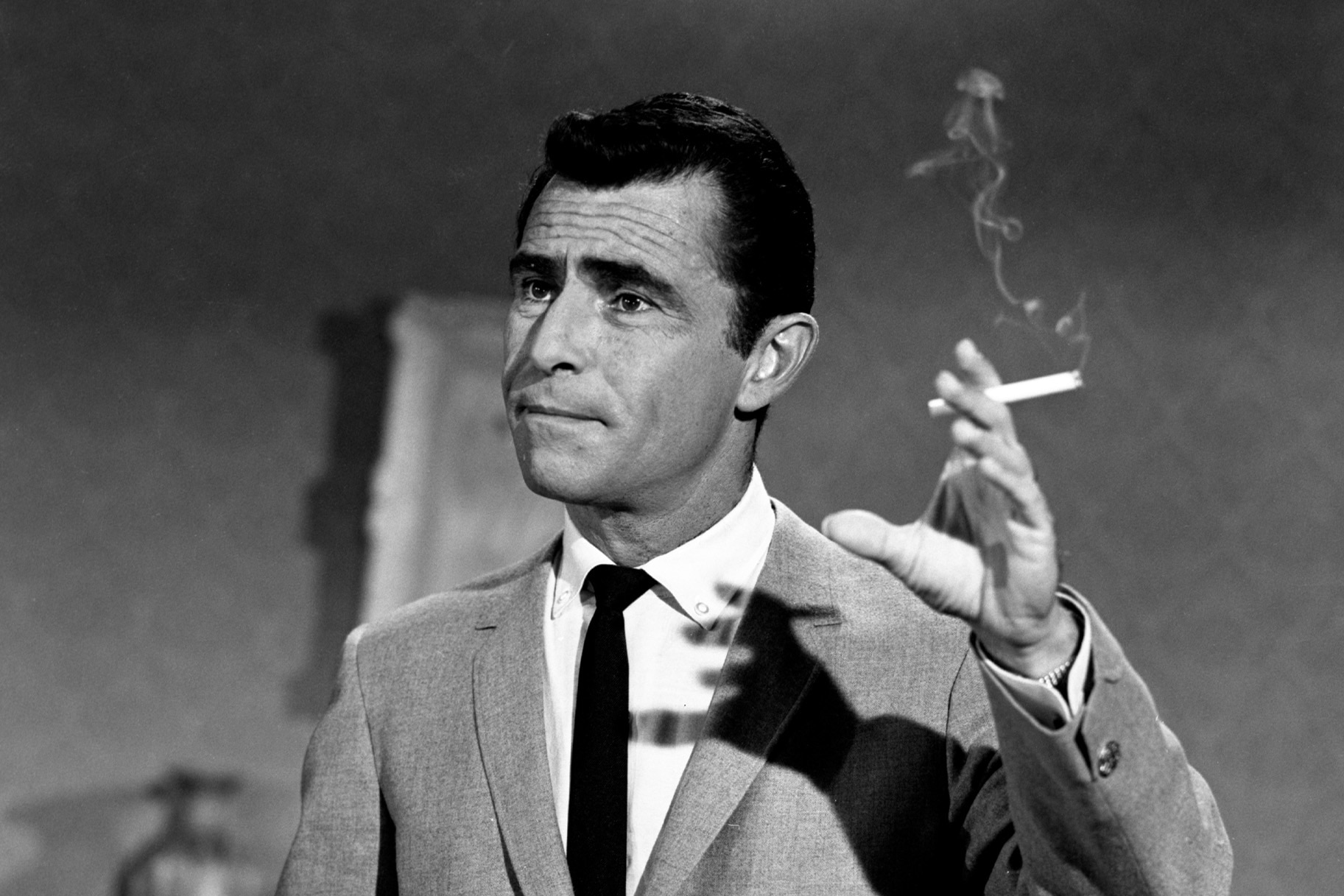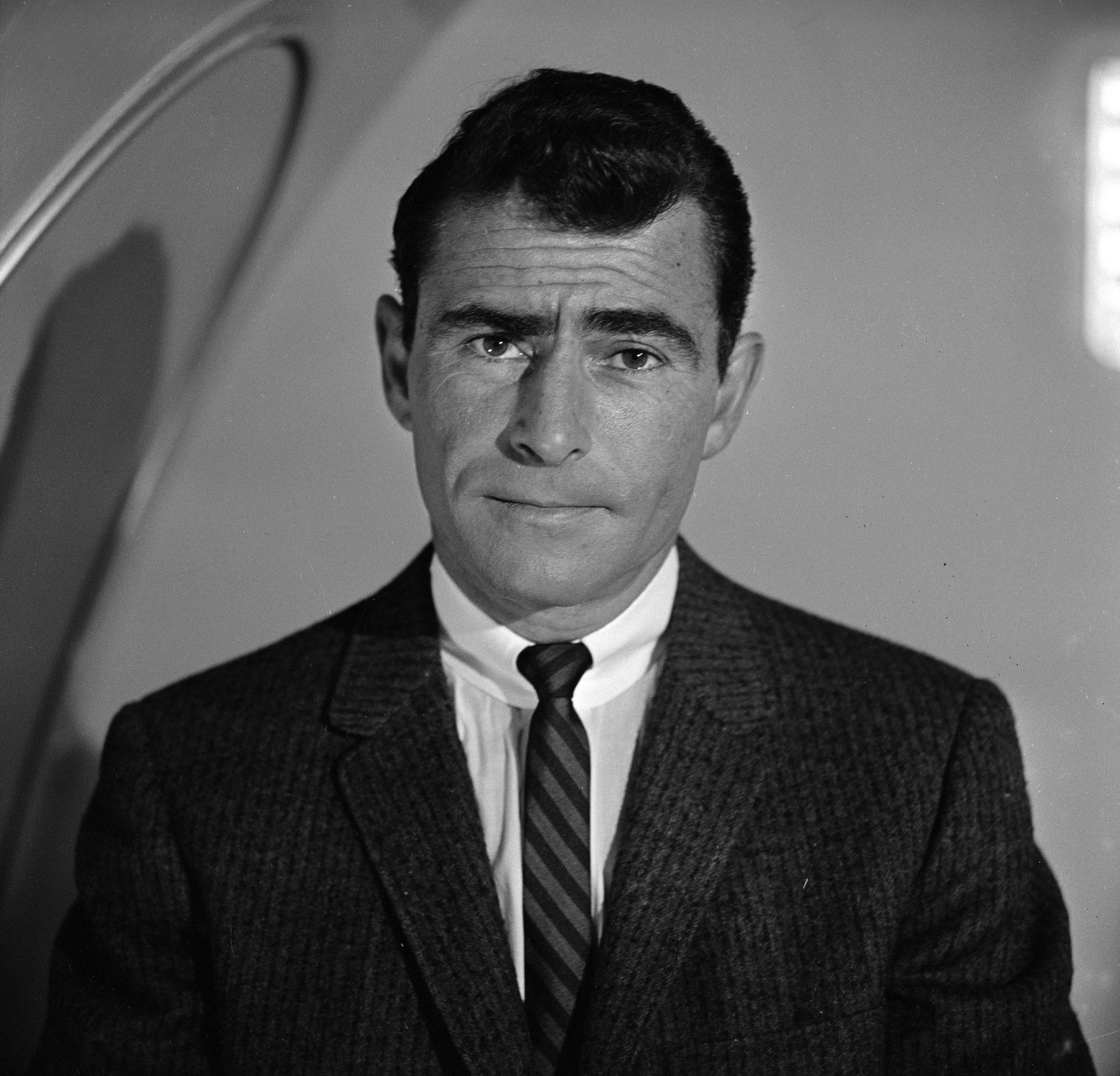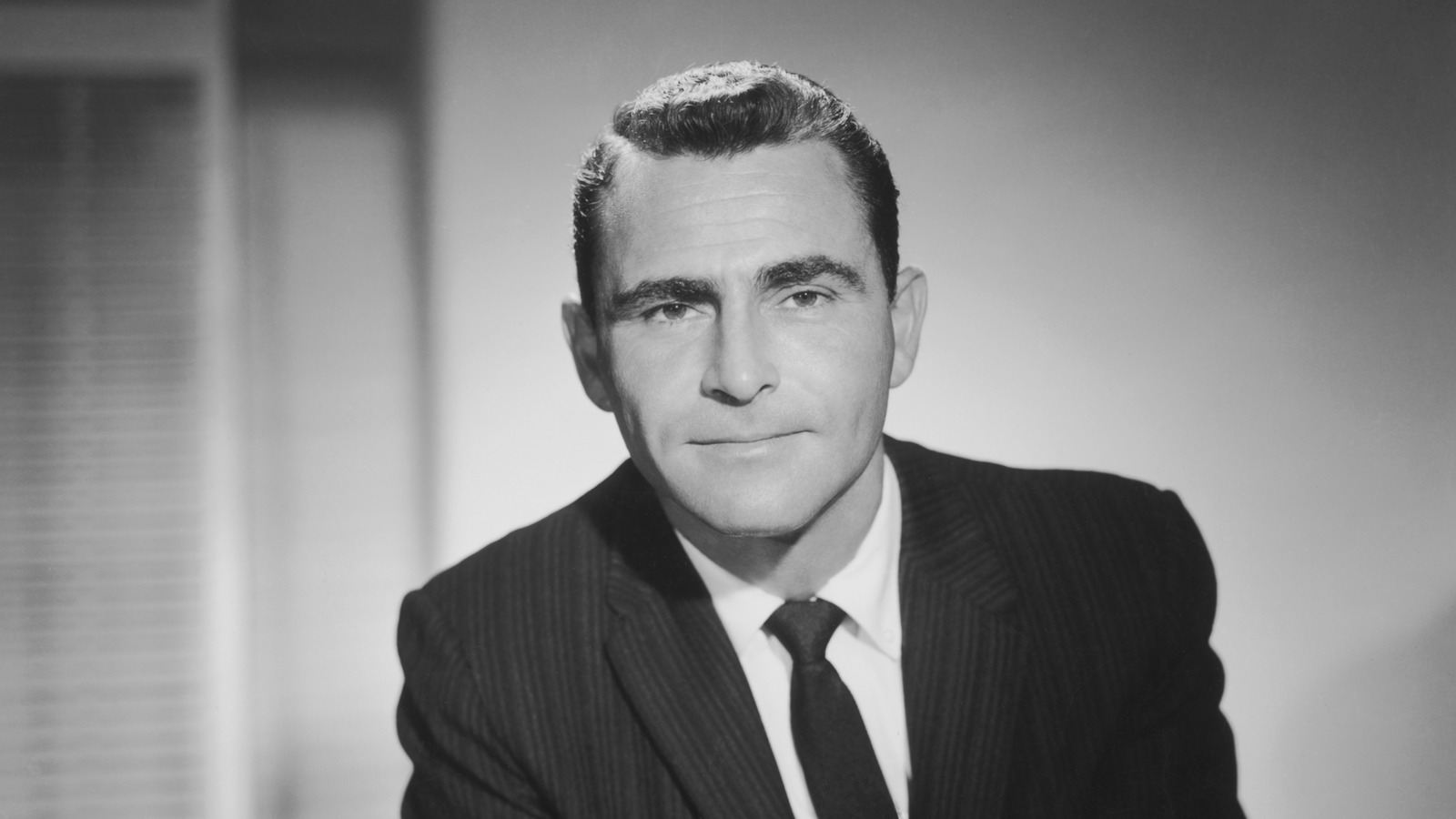Rod Serling - A Visionary Voice On Humanity
Rod Serling stands as a truly significant voice from a particular period in television history, someone whose thoughts about society and human nature still resonate with people today. He was, you see, a writer and creator whose work often held up a mirror to the world, asking us to look closely at what we saw. His creations, like The Twilight Zone and Night Gallery, were not just entertainment; they were, in a way, conversations about the things that really matter, about the choices we make and the kind of world we build.
His observations, captured in various statements, show a deep concern for the direction society was heading, especially when it came to things like how we treat one another or our collective fascination with certain darker aspects of life. It’s almost as if he was always prompting us to think a little harder about the stories we tell ourselves and the impact they have. Very often, his stories encouraged a deeper look at ourselves, too.
The connections others made to his work, even years later, really show how much his ideas continued to influence public thought and how relevant his particular outlook remained. People remember his words and the worlds he built, often drawing parallels to current events or societal issues, which, in some respects, speaks volumes about the lasting quality of his insights. So, his words still carry weight, you know?
Table of Contents
- Rod Serling - A Life of Purpose
- Rod Serling and His Thoughts on Society
- How Did Rod Serling Address Societal Issues in His Work?
- What Was Rod Serling's View on Entertainment and Its Role?
- What Was Rod Serling's Impact on Television?
- Rod Serling and the Political Climate of His Time
- Did Rod Serling Collaborate with Other Notable Figures?
- Rod Serling's Legacy Beyond the Screen
Rod Serling - A Life of Purpose
While the provided text gives us a window into the thinking and creative output of Rod Serling, it does not offer specific biographical details such as his birthdate, birthplace, or family background. What we do gather is that he was a significant figure in television, known for creating thought-provoking shows and for his distinct perspective on human behavior and societal trends. His contributions seem to stem from a place of deep observation and a genuine concern for the human condition, as expressed through his writing and the themes he explored. Basically, he was a person who made people think.
His work was not simply about telling stories for amusement; rather, it often carried a deeper message, pushing viewers to consider moral dilemmas or social issues. This approach suggests a person who saw storytelling as a powerful vehicle for commentary and reflection. So, you can see he was a writer with a definite point of view.
Personal Details and Bio Data - Rod Serling
| Detail | Information |
|---|---|
| Full Name | Information not available in the provided text |
| Birth Date | Information not available in the provided text |
| Birth Place | Information not available in the provided text |
| Occupation | Writer, Television Creator (from context of shows mentioned) |
| Notable Works | The Twilight Zone, Night Gallery, The Rack (a TV play) |
| Key Philosophy | Concern for societal direction, human nature, and the impact of media |
Rod Serling and His Thoughts on Society
Rod Serling held some rather clear and pointed views on the direction he saw society taking, particularly concerning self-absorption and a certain turning inward. He once put it this way: "Just drawing back and drawing in, becoming narcissistic." This observation speaks to a worry about people becoming overly focused on themselves, perhaps at the expense of connection with others or a broader awareness of the world around them. It's a thought that, you know, still feels quite relevant to many conversations people have today about how we interact and live.
This idea of self-focus might also explain some of the themes that appeared in his creative works, where characters often faced situations that forced them to confront their own biases or shortcomings. The stories he told frequently served as a way to explore what happens when individuals or groups become too wrapped up in their own perspectives. In a way, his writing was a gentle nudge, or sometimes a not-so-gentle push, for people to consider the wider implications of their actions and attitudes. He really wanted people to look beyond themselves.
His perspective, then, wasn't just a casual remark; it was, apparently, a core part of his outlook, influencing the kind of narratives he chose to bring to the screen. It suggests a writer who believed in the power of stories to illuminate aspects of the human spirit, both the bright and the shadowed parts. So, his words weren't just words; they were reflections of a deep concern for how people lived their lives.
How Did Rod Serling Address Societal Issues in His Work?
Rod Serling tackled societal issues with a directness that sometimes felt uncomfortable, but always made you think. He was, it seems, particularly bothered by the way certain kinds of content seemed to permeate everyday life, especially when it came to violence and cruelty. He voiced a strong feeling about this, stating, "There’s enough perversity and sadism in the world without me inviting it into my living room." This quote really shows his personal stance on the kind of material he was willing to consume or, perhaps more importantly, create. He just didn't want that stuff in his home.
He carried this sentiment further, expressing a clear displeasure with the broader public's interest in dark subjects. "Disgusted am I with America’s fascination with crime," he declared, adding, "No wonder we’re desensitized to it." This points to a real concern that constant exposure to stories about wrongdoing and harsh acts could dull people's feelings, making them less responsive to actual suffering or injustice. It's a pretty strong statement about the effects of what people see and hear all the time. He was, basically, worried about how people's hearts might harden.
This perspective helps us understand the careful way he approached storytelling in his own shows. While his programs often explored frightening or unsettling scenarios, they typically did so to make a moral point, rather than simply to shock or exploit. The goal was usually to provoke thought about human behavior or social structures, rather than to revel in grimness. For example, shows like Perry Mason, which he might have seen as a contrast, were described as "generally tolerant," suggesting a way of handling difficult subjects with a certain amount of dignity or fairness. So, he wasn't against all challenging content, just the kind that seemed to celebrate cruelty for its own sake.
What Was Rod Serling's View on Entertainment and Its Role?
Rod Serling's outlook on what entertainment should do, and how it ought to behave, appears to have been quite distinct. For him, it wasn't just about passing the time; it was, in a way, about making a point, or exploring a deeper idea. His shows, like the famous Twilight Zone, were not just collections of strange stories; they were, as someone put it, "a theme show." This means each episode, despite its unique plot, served to explore a larger concept or question about humanity, society, or morality. It's a bit like how a good piece of music carries a feeling, you know?
This idea of a "theme show" suggests that Serling saw television as a powerful medium for conveying significant ideas, wrapped up in engaging narratives. It wasn't about cheap thrills; it was about using the strange and the unexpected to reveal something true about the human experience. His commitment to this kind of storytelling suggests he believed entertainment could and should do more than simply distract. He really thought television could be used for something important.
His later work, Night Gallery, also seems to fit this mold, with one person even calling it "one of the best shows ever on TV." The fact that someone like Joanna Pettet considered it her "favorite project" also speaks to the quality and impact of this particular series. This indicates that Rod Serling consistently aimed for a kind of entertainment that left a lasting impression, one that perhaps lingered in the mind and sparked contemplation, long after the credits rolled. So, he truly aimed for something meaningful with his creative efforts.
What Was Rod Serling's Impact on Television?
Rod Serling's influence on television was, you could say, pretty substantial, shaping how people thought about what a TV show could be. His creations, especially The Twilight Zone and Night Gallery, really pushed the boundaries of what was considered acceptable or even possible for the small screen at the time. These programs weren't just popular; they also became benchmarks for storytelling that combined suspense with deep social commentary. It's almost like he created a whole new kind of storytelling for television, a bit like how some artists change the way people see painting.
Beyond his well-known anthology series, Serling also contributed to other forms of media, showing his versatility as a writer. For instance, he wrote a TV play called The Rack, which was later adapted into a film. This film, made "just before he made Somebody Up There Likes Me," featured what was considered "one of his greatest performances." This connection highlights how Serling's writing provided the foundation for powerful dramatic work, not just in episodic television, but also in feature films, reaching a wider audience with his thoughtful narratives. So, his ideas really traveled across different forms of media.
The lasting appeal of his shows, with their timeless themes and often surprising conclusions, has kept Rod Serling's work relevant for generations. People still watch and discuss episodes of The Twilight Zone today, finding new meanings in their allegories about human nature, prejudice, and the consequences of technology. This enduring popularity is, in a way, a testament to his unique ability to craft stories that resonate deeply and continue to provoke thought, long after their initial broadcast. He really made a mark that continues to be felt.
Rod Serling and the Political Climate of His Time
Rod Serling's era was a time of significant social and political change, and his work often reflected the tensions and hopes of those years. The connection between his period and later political discussions is perhaps best illustrated by an observation from someone like Dick Van Dyke. Earlier this month, Van Dyke publicly supported Kamala Harris on social media, and in doing so, he drew a parallel between the current election and the political atmosphere of 1964. That year, Van Dyke gave a speech at an event for Martin Luther King Jr., which suggests a period of intense social activism and a push for civil rights. So, the issues of the day were very much on people's minds.
This comparison by Van Dyke, linking a past political moment to a present one, implicitly places Rod Serling's work within a tradition of public commentary and social awareness. Serling's shows, with their frequent exploration of themes like prejudice, conformity, and the abuse of power, certainly fit into the broader conversations happening in the 1960s. He was, in a way, using his platform to address the very real concerns of his time, often through the lens of science fiction or fantasy, which allowed him to speak about sensitive topics without being overly preachy. It's almost like he found a clever way to talk about serious things.
The fact that a public figure would reference that specific historical period when discussing today's political landscape speaks to the enduring relevance of that era's struggles and the voices that shaped its discourse. Rod Serling, through his unique storytelling, was undeniably one of those voices, contributing to the cultural conversation about what it meant to be a citizen in a changing world. His work, therefore, wasn't just entertainment; it was, you know, part of the larger societal discussion.
Did Rod Serling Collaborate with Other Notable Figures?
Rod Serling, as a prominent figure in the entertainment world, naturally crossed paths with many other well-known individuals of his time. The provided text mentions him in a discussion alongside several other public figures, though the context is specific and requires careful handling. It states, in what appears to be a quoted passage, that "other noted homosexualists of the day included danny kaye, arthur kennedy, vincente minnelli, rod serling & shelley winters." This particular statement is then immediately followed by a direct clarification about one of the people mentioned: "Shelley winters was not a lesbian." This information, as presented, does not detail collaborations, but rather a listing within a particular kind of social commentary or historical observation. So, it's a specific kind of mention, you know?
While the text doesn't elaborate on the nature of any working relationships between Rod Serling and the individuals listed (Danny Kaye, Arthur Kennedy, Vincente Minnelli, or Shelley Winters), its inclusion does place Serling within a broader circle of creative and public personalities of that period. It suggests he was part of the cultural conversation, and his name was recognized among other notable people from various fields of entertainment. This kind of mention, even without details of specific projects, shows he was a recognized person in those circles.
The text also points to a collaboration of sorts in the creation of the film The Rack, which was "based on a TV play by Rod Serling, adapted by Stewart." This indicates that Serling's original writing served as the foundation for a cinematic work, and that his ideas were taken

Rod Serling Was Not The Original Twilight Zone Narrator

'The Twilight Zone': What Was Rod Serling's Favorite Episode?

Rod Serling Went Through Hell Every Time He Narrated The Twilight Zone